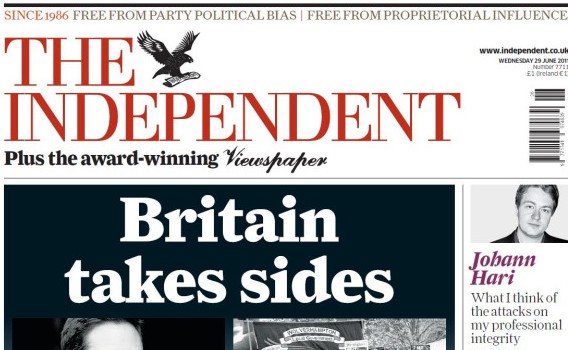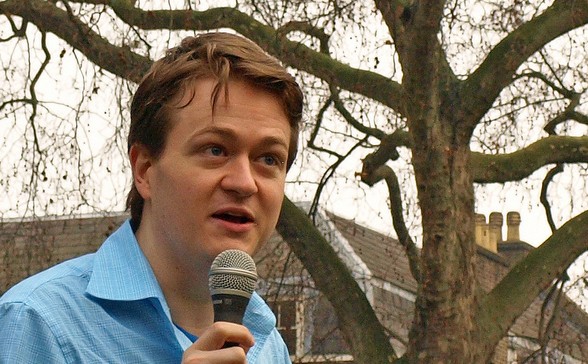Media coverage of the police hunt for Raoul Moat may have come to an end, but the debate over how the press reported on events continues.
From live video coverage of Moat’s stand-off with police, to interactive maps, to timelines of events leading up to his attacks, – the terrifying story gripped our news headlines.
But the volume and content of some coverage has led to criticisms of sensationalism and glamourising, from outside and within the industry – with some even warning reports could encourage future attacks.
The debate over the media’s responsibility when reporting such events has even prompted a Twitter debate from the BBC, who will hold a debrief tomorrow to discuss the lessons to learn from covering the actions of people like Raoul Moat.
Responding to the debate on Twitter, @julesthejourno illustrated the problem – while some of the real-time footage may have been difficult to watch, it was equally impossible to turn off, for a public with a desire to know the latest developments.
Friday’s live coverage was so raw (especially the phone calls) it felt wrong to watch but even more so to change channels.
This supports Barbara Ellen’s post at the Observer, which claimed that the media are simply “feeding the ‘public interest’ monster”.
It’s too pat to blame the news media. They are merely feeding the “public interest” monster – a ravenous, impatient, rubbernecking creature. In a way, that seems almost too tidy. It seems to be this very part of us that feeds the “death and glory” monster presumably lurking inside poor, deluded sods such as Moat, making all those fantasies about being the centre of attention, the big scary guy with the gun, come true.
But she warns that demand for such coverage could lead to a very dark road.
Homicidal sprees as another form of spectator sport? Just another button on the remote control, perhaps labelled “Homi-tainment”, with a helpful skull and crossbones motif? The whole thing was reminiscent of iconic scenes from the US. “Homi-tainment” was definitely there when OJ went off on his car chase, Waco went under siege, even in those candlelit vigils outside prison executions. Didn’t Brits used to think we were rather above this kind of thing? Well, seemingly not any more.
But is the media to blame for how the news itself plays out? Freelance journalist Martin Robbins has written a series of “serious questions” which he feels need to be answered by the media, who he claims created a “carnival atmosphere” with their coverage.
His comments have since exploded across Twitter and the blogosphere.
One such question is whether the media understand the nature and extent of their influence on Raoul Moat? Robbins says a quote from Moat proves that media coverage could have directly led to another person being killed:
For every piece of inaccurate information published I will select a member of the public and kill them.
In response, Robbins questions the morality of the press who he accuses of doing just that.
Can they explain why they printed inflammatory details that had no conceivable public interest justification? Can they go to bed tonight safe and sound in the certain knowledge that they did not contribute to his death?
Answering his question, the bloggers at Fleet Street Blues simply replied: “yes”.
Look, it’s not as if the Raoul Moat story was Fleet Street’s finest hour. It showed how the proliferation of online news has only heightened the demands of the 24-hour rolling news cycle, and no one’s saying the televised ending was particularly edifying for anyone concerned.
But the implication that journalists were too intrusive, too inquisitive and too obstructive to police is just inaccurate.
Channel 4’s Alex Thomson, whose real-time Tweeting also came under fire from Robbins as an illustration of the media chase, defended his work on Twitter:
“can’t speak for media but yes, v proud of c4n Moat coverage which I say was informative, factual and not sensational.
But psychologists remain concerned that even though the coverage of Raoul Moat’s run from the police may be over, it had the power to encourage another similar event in the near future.
Reporting for the Independent, Johann Hari asks if the media will now indirectly help others “pull the trigger”.
Suddenly, they are shown a path where their problems won’t be trivial and squalid and pointless. No: they’ll be the talk of the entire country. They’ll be stars.
The way we report these cases can make that man more likely to charge out of his house to kill, or less. The psychologists say that currently we are adopting the most dangerous tactics possible. We put the killer’s face everywhere. We depict him exactly as he wanted, broadcasting his videos and reading out his missives. We make his story famous. We present killing as its logical culmination. We soak him in glamour: look at the endless descriptions of Moat as “having a hulking physique” and being “a notorious hard man”.
We present the killer as larger than life, rather than the truth: that these people are smaller than life, leading pitiful, hate-filled existences.
Feel free to leave your own thoughts below.

